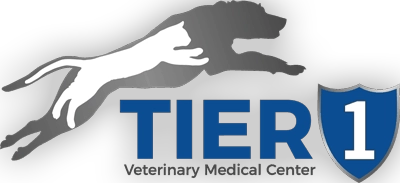We use a wide variety of medications in veterinary medicine. Many of them overlap with human medicine but are prescribed at different dosages and for different conditions. In the last few years, CBD has made its way into veterinary medicine. While it has its uses, it’s a bit like grain-free diets: overused and potentially dangerous. To be safe for use in animals, it needs to be pure CBD, as THC is a toxin for animals. CBD can be a boon to the treatment plan for many conditions, but is it not a cure-all. Try not to be shocked; not every pet or every condition benefits from CBD.
CBD Is Not a Cure-All for Pets’ Ailments
CBD is fairly widely available and even more widely used. I cannot even remember the number of times I have talked to someone about an ache, random ailment from muscle and joint pain, trouble sleeping, or even acne that they didn’t recommend CBD. Newsflash: there is no miracle cure-all. Be mindful of a placebo effect. Be conscious of what is actually helping your pet, and be honest about what you want to feel is working.
I believe the best medicine is a blend of eastern and western medicine. Naturopathic remedies can significantly improve a treatment protocol and sometimes replace it. However, this needs to be an objective decision based on a response to treatment, not an impulse because you’re an all-natural enthusiast and want your pet to be too. Don’t let your excitement about CBD or a natural approach override your pet’s best interest.
Potential Uses for CBD for Pets
I have seen CBD used for seizures, stomach upset, skin lesions, arthritis, pain management, anxiety, sedation, and many other ailments. There are several conditions where CBD alone can serve as an acceptable medication. With that being said, good medicine is tailored to an individual patient; there is no cookie-cutter approach that works for every patient or every condition. If you feel strongly about trying CBD, just ask your veterinarian if it’s an appropriate option for your pet.
Here’s my usual take on it: an appropriate CBD supplement will not hurt, but it may not help. So be diligent in assessing your animal’s response to treatment. As veterinarians, we can’t see the day-to-day changes and reactions. We need your eyes and advocacy for your pet to help us help them. If something isn’t working, we may need to replace or add more medications. If CBD is helping your animal, we may be able to remove other medications from the treatment plan. It depends on your pet’s individual needs and response to treatment.
Make Sure It’s Pure
All of these recommendations and implementations are for pure CBD. In Alaska, you can spit and just about reach Russia, but you can’t spit without hitting a pot shop. They are everywhere, and as more and more pot shops pop up, CBD is sold right alongside THC products. However, some shops have locked onto this medical niche and sell only CBD. You can also find CBD supplements in many pet stores.
Be conscious of the qualifications of the people you are accepting medical advice from and the source of a supplement you are using to treat your animal. Is the purity specified on the label? Is it confirmed by an individual lab? Do you know which lab and its qualifications? Do you trust the lab with your pet’s health?
CBD has shown promise in the treatment of multiple conditions, so most veterinarians are now carrying CBD oils, treats, and other forms of CBD. Veterinarians obtain this medication from companies and distributors that we trust with the health and safety of our own animals’ health and that of your pet. If you want your pet on a more natural approach or CBD has been recommended for your pet, be mindful of your sources for this MEDICATION.
The Importance of Finding THC-Free CBD
When it comes to drug testing, the military holds a zero-tolerance policy for THC. I have seen more than one soldier wind up in hot water with CBD supplements that were supposed to be pure. When disciplinary action or even a discharge rests on your medication selection, you’re more apt to be cautious. Similarly, what is resting on the decision of what supplement to use for your pet?
I’ve written an additional blog on the risks of THC toxicity in animals, including muscle tremors, seizures, and death. What risk do you deem acceptable for sourcing CBD when these are the potential stakes?
Tier 1 Veterinary Medical Center in Palmer is Alaska’s only comprehensive animal hospital. We are available by appointment, in addition to accepting emergencies and walk-ins. With CT, MRI, and Ultrasound available on-site, our facility provides advanced treatment options for your pet. Contact us today to schedule an appointment.
